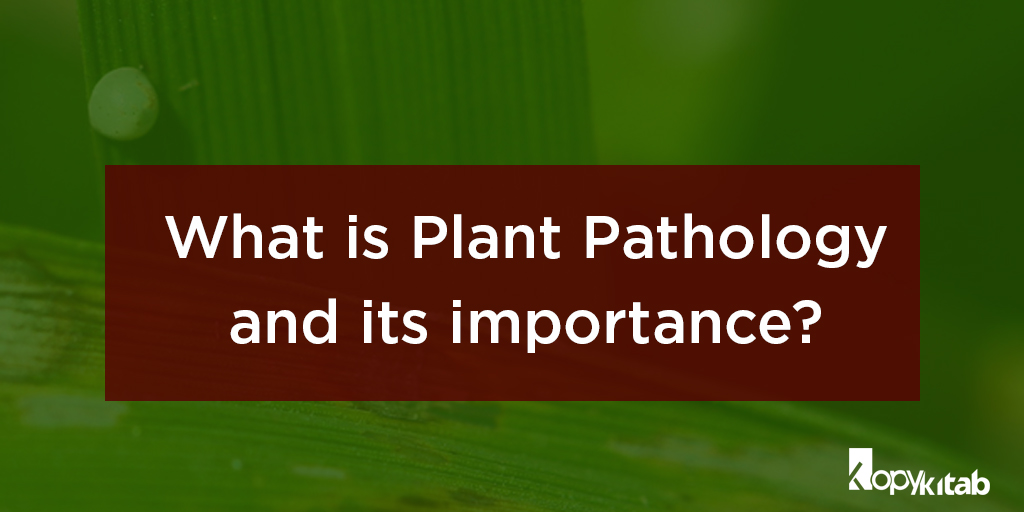
Plant pathology and its importance: A plant becomes diseased when it is continuously disturbed by some causal agent that results in an abnormal physiological process that disrupts the plant’s normal structure, growth, function, or other activities. This interference with one or more of a plant’s essential physiological or biochemical systems elicits characteristic pathological conditions or symptoms.
Plant diseases can be broadly classified according to the nature of their primary causal agent, either infectious or noninfectious. Plant diseases can be broadly classified according to the nature of their primary causal agent, either infectious or noninfectious. In nature, plants may be affected by more than one disease-causing agent at a time. Knowing about the diseases, its characteristics, how to resolve is required and hence it is called as Plant Pathology. Plant Pathology is the scientific study of diseases in plants caused by pathogens and environmental conditions.
Plants, like animals and humans, can also become diseased. In fact, there is a much wider number of plant diseases than there are human or animal diseases simply because there are more plant species involved in agriculture, horticulture and forestry than in medical or veterinary medicine.
The science of plant diseases is called plant pathology, or phytopathology. There are a wide variety of microorganisms such as fungi, bacteria, viruses and nematodes that cause these diseases. Diseases caused by these pathogens are often called biotic diseases. Also, environmental conditions, such as winter damage or drought stress, can cause disease in plants. Diseases caused by these factors are often called abiotic diseases.
Importance of Plant Pathology
- Plant Pathology has advanced techniques to protect crops from losses due to diseases.
- The science of plant pathology has contributed disease free certified seed production.
- Most of the diseases with known disease cycle can now be avoided by the modification of cultural practices.
- With the knowledge of mode of disease spread, many diseases of economic importance can now be checked, minimized or controlled.
- Crop improvement and varietal resistance have been achieved against many diseases through the joint effort of breeder and plant pathologist.
- Plant pathology has made possible to restrict the spread of plant diseases from one place to other and one country to other through suitable measures and quarantine legislation.
- With the knowledge of studying about plant diseases, various prophylactic measures are adopted for successful management of diseases. These measures are seed treatment in seed borne diseases, soil treatment and crop rotations.
- Diseases can be avoided in cold storage by the application of plant pathological measures as per recommendations made for different diseases for protection of fruits and vegetables in storage.
- Plant pathology has made possible to recognize, discard or utilize toxic substances by producing toxic substances or by competition or by parasitism. Organism exerting such lethal or damaging effect on the other is called antagonist.
There are huge opportunities for becoming plant pathologist. If you are willing to study about plant diseases or take this up as your career then you buy latest Plant Pathology books available online. We will keep you updated with latest information regarding Plant Pathology.
